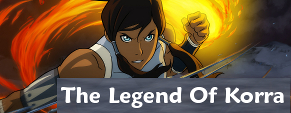Review-Roundup: Garo – The Animation 01-03, Shingeki no Bahamut: Genesis 01-03, Akatsuki no Yona 03
![[C12] Shingeki no Bahamut - Genesis - 02.mp4 - 00001](https://otakuness.files.wordpress.com/2014/10/c12-shingeki-no-bahamut-genesis-02-mp4-00001-e1414011096874.png?w=604) Favaro as he finds out he’s been forced to become a part of a ronin-demon’s personal quest and the consequences it brings with it.
Favaro as he finds out he’s been forced to become a part of a ronin-demon’s personal quest and the consequences it brings with it.
This time, I review:
Garo 01-03: These days living is a shitty thing to do for servants of Makai. With a demon-supporter continuously having the ear of a weak, aging king, all those whose job it is to hunt down and kill demons are now turned into public enemies. Naturally, there’s some emo-teenager who has a big role to play in the fate of that kingdom. Luckily, though, he’s surrounded by a lot of more interesting people.
Shingeki no Bahamut 01-03: Favaro didn’t want to be a hero, in fact, he didn’t want to be anything. What he wanted… well, actually, it didn’t really matter what he wanted because he was rather forcibly dragged into a foolish quest of some demon-girl to go to Helheim. Also, he has a rival who might as well be his best friend.
Akatsuki no Yona 03: Apparently the best way to spend your childhood is to sow the seeds for a love-triangle. Also… thank God for snakes! How else would you want to create drama in the middle of nowhere?
Garo: Honoo no Kokuin 01-03 Review:
![[C12] Garo - The Animation - 02.mp4 - 00004](https://otakuness.files.wordpress.com/2014/10/c12-garo-the-animation-02-mp4-00004-e1414012045574.png?w=604) No wonder, Leòn has a bit of an Oedipus-Complex when his father is talking to him about his dead mother while a prostitute is rather aggressively flirting with him…
No wonder, Leòn has a bit of an Oedipus-Complex when his father is talking to him about his dead mother while a prostitute is rather aggressively flirting with him…
If you just look at the facts, this series simply should not be good. It’s based on some Live-Action-series from the ilk of Power-Rangers and the anime would try to tackle some original story instead of adapting the original series’ story. And the original story this series chooses is one of mythical knights, demons, wizards, witches and royal drama we’ve all seen before. It’s not very original.
Yet, personally I feel like this is one of the best series this season.
It all starts with the simple fact that this series wants to tell a high-fantasy-story and JUST that. The tropes it uses aren’t original but the series commits to them and there’s no moe and stuff like that thrown in there just for the sake of “But everybody else is doing it!”. It’s SO refreshing to see a series actually commit to its genre and not dilute its own story to acquire some mass-appeal.
And the unoriginal tropes even help this series in the way it can structure its pacing. The ideas behind the series are easy to understand and there doesn’t need to be a lot of exposition to explain what’s going on. By having these familiar tropes, the first episode immediately created a very immersive setting.
It also helps that instead of being cheesy, these familiar tropes are used in a more succinct manner. The series never becomes overbearing or tries to push something down the audience’s throat. The first episode smartly summarizes all the elements of the setting while also introducing its characters and plot.
Naturally, there’s still fanservice in this show. It has to sell itself somehow and this certainly ain’t the type of the series that tries to follow high-minded ideas. And so we get to see Germàn have little chat with a naked prostitute. It’s an egregious scene – or at least it would be. The writing really finds a way to not make this about a naked woman being there and add some sensible context to the scene.
Sexuality itself is never bad. The problems start, though, when it becomes pandering (and mostly it’s pandering for the male gaze). It’s stuff like when some teenager-dude enters a room without knocking and sees a girl naked. There’s no point to this sexually speaking except to show off the naked girl’s body and that the male teenager is flustered but also sometimes interested in a perverted sense. What we get to see in that first episode, though, is an adult man and an adult prostitute having who lie naked on a bed after they had sex presumably. The sexuality of the situation is front-and-centre here and natural considering the situation. Rather than trying to turn this scene into some joke or perverted accident, it openly flaunters its sexuality. That’s a far more mature approach than what most animes do when it comes to fanservice.
Really, most of what this series is doing works because it knows what it’s doing. The series is aware of its corny fantasy-tropes and so it always keeps up a very incidental pacing. The series isn’t spontaneous or random but the series doesn’t have any big aspirations for big dramatic arcs or stuff like that. There’s a really good direction and script-writing at play here that keeps the story going while also making it entertaining. Look, I know that this will be probably about how the Makai-Knights will kill that treasonous, manipulative advisor of the king but no episode so far felt predictable. This is a series which knows what it’s doing.
Just take Leòn for example. He could be the most obnoxious, emo brat with an Oedipus-complex and yet he isn’t. Rather than letting him have one tantrum after another and always giving him the limelight, his father and other characters interact in an understanding way that just shows off how much of a brat he is. And his obnoxious character, therefore, actually seems like the “mental armor” he has build for himself to cope with his traumatic origins. Again, it’s less the actual trope here but the self-awareness the show has in portraying it like it does. You may not get intellectual moments from this show like someone wondering if a monarchy is a bad system of government if it can be so easily corrupted but instead you get straightforward, entertaining moments like a prince who has to flee the castle while vowing to right the wrongs wrought by that demonous snake of an advisor. This is a series that not only wants to be a fantasy-series but actually knows what matters in a genre-laden story like this one.
Episodes-Rating: 7.5/10
Shingeki no Bahamut Genesis 01-03 Review:
![[C12] Shingeki no Bahamut - Genesis - 02.mp4 - 00003](https://otakuness.files.wordpress.com/2014/10/c12-shingeki-no-bahamut-genesis-02-mp4-00003-e1414012224657.png?w=604) So far, Amari is actually more plain cute than moe so far. There aren’t any sort of exaggerations you would usually associate with moe-ness.
So far, Amari is actually more plain cute than moe so far. There aren’t any sort of exaggerations you would usually associate with moe-ness.
This series is simply fun! That’s another way of saying that this is actually my favorite series of this season. It also helped that I was completely surprised by how good this series has been so far. It’s an adaptation of an online TCG and it has the barebones of a setting for the creation of those cards – but it’s not much. This could’ve been just another lame cash-in adaptation with the blandest shounen-action-plot imaginable that would try to sell itself by having a lot of moe-like girls surround the main-hero and be all cute and shit. Much like Garo actually, this series is very self-aware of what it’s trying to do but even better this series does it with genuine style.
The first thing that really sets this series apart from other series is its main-character Favaro. He’s probably the closest thing to Jack Sparrow animes have ever seen. His character is a total rogue and, more than that, inherently self-centered and amoral. And yet, through pure chance, he gets roped into these adventures where he has to fight as a “good guy”. This series knows that deep down Favaro may have something like empathy but mostly he’s really just a bad person. And the series really never holds back in showing off his awful, roguish nature. Constantly the show has these little moments where Favaro acts one way but then he turns away and we hear an inner monologue showing off how selfish he actually is. He isn’t even an anti-hero! There’s nothing heroic about Favaro! But because the series never even tries to portray him as a good guy, his characterization is one of the most level-headed imaginable. As he’s constantly trying to find a way out of the actual story surrounding Amira who has the God-Key, he ends up seeming more reasonable than most heroes in similar series. Rather than letting sentimentality be the motivation to not even acknowledge the danger of the situation the hero finds himself in, Favaro is VERY self-aware of what is happening. And so he does selfish things, but rather than just making him the butt of a joke, the series does a VERY good job of making his actions seem relatable. The audience KNOWS he’s a bit of an asshole and that he doesn’t give a shit about some epic quest that will bring the God-Key to Helheim.
And the series’ sense of humor is impeccable, too, in this regard. Having scenes like that whenever Favaro pleads that he’s an honest and trustworthy person he starts grinning stupidly is such a great moment in terms of fun and characterization. Like with Jack Sparrow, part of the charm of Favaro is the fact that, despite all his roguishness, his selfish plans are almost as reliant on his wits as luck. In some ways, he’s doing the right thing at the right time – despite himself. Favaro is a character that isn’t funny but is fun to watch.
But this series isn’t about fun actually. There is a serious story this series cares about and this series is doing a marvelous job of introducing it and making the audience care about it. You see, this series actually needs to do worldbuilding to make the story accessible. But it handles its storytelling far better than most series: One, it doesn’t expect the audience to be total idiots. Stuff like how the bounty-hunters have wanted-posters for various “quests” is never really explained. It just becomes part of the world as this is an actual case that adheres to the “show, don’t tell”-rule. Rather than explaining it in a tiresome, detailed manner, the series simply shows how it works.
More than that, a lot of the fantasy elements are simply treated as “Of course, this shit’s real in this setting.”. The series doesn’t over-dramatize every detail of its supernatural elements to make it “meaningful”. You can just notice this with little things like that no character ever talks about Bahamut as if he can be the end of the world. He is that, of course, but the series has established that and no character ever repeats that unnecessarily. He’s just THE Bahamut and that’s how characters in this show talk about him.
Meanwhile, stuff like when Favaro enters some ruined mansion to kill some giant demon, it’s never explained why that thing was there or who wanted it killed. There’s no real context for the action-scenes that happens in that place. But instead of having this immediate context, the series chooses a context that serves as good worldbuilding. Favaro is a bounty-hunter and he’s doing his job in just killing off stuff that has a ‘Wanted’-poster. Rather than trying to dramatize what should be mundane for a bounty-hunter in this series’ universe, the series smartly shows off the routine of the whole thing and the system with this god in a carriage that makes this possible. It’s really a great example of “show, don’t tell”.
Another thing that should be mentioned is that the animation is very well-done as well. Especially since it does use some CG-stuff for the animations but rather than using that stuff for the whole thing, it’s used more in a supportive function. Because of that, animation-wise this series does indeed has somewhat “enhanced” moments like when Favaro and Amira dance in the second episode that feel far more dynamic than what traditional animation is capable of.
The third episode was the first truly episodic one of these three and it has been a great one. Starting with the characterizations of Kaisar, Rita, the necromancer, and the actual story of the episode – it has all been great. And it didn’t feel like a waste of time, either. Before the third episode, I worried a bit about the pacing of the story as it hasn’t been exactly clear what the fucking deal is, actually. But the third episode clearly showed how the series wants to reveal the actual story in tidbits. Normally, this wouldn’t be a great move but with such compelling characters and the kind of direction this series has so far, it doesn’t even need to lean on its main-story for entertainment. This series really is just fun from beginning to end! More than that, you can really feel how much the good direction and script-writing improve this series and make even seemingly weaker moments shine.
Episodes-Rating: 8.5/10
Akatsuki no Yona 03 Review:
![[C12] Akatsuki no Yona - 03.mp4 - 00003](https://otakuness.files.wordpress.com/2014/10/c12-akatsuki-no-yona-03-mp4-00003-e1414012406402.png?w=604) The natural solution to an inferior male being a dick to a desirable female is for a superior male to be both a dick to the inferior male AND the desirable female.
The natural solution to an inferior male being a dick to a desirable female is for a superior male to be both a dick to the inferior male AND the desirable female.
So, now I’ve talked about great series that made the most of their stories. And now I have to talk about a series that is rather marred by its direction. I have to admit that I have NOT liked this series so far. The characters were just these thin types and the plot was as predictable as it was uninteresting. But at this point I’m starting to wonder whether the problem isn’t so much the story itself but the staff behind this anime-adaptation.
I really feel like this has been the best episode so far – until it was completely ruined for me. But more on that later… First, let’s talk about what should be important for this series and how different that is from what this adaptation wants to focus on. Emotions, the MOST important thing this series has are emotions. The fate of the kingdom? Irrelevant. The murder of the king? Irrelevant. The danger the princess finds herself in? Irrelevant. No matter where you look in this series, a lot of it is simply irrelevant. Don’t get me wrong, it has a place within the story and a function but what this series REALLY wants to talk about is emotions. Between Hak, Soo-Won and Yona there’s a whole Soap-Opera-thingy going on and THAT is what the series wants to talk about. The rest…? Irrelevant, just irrelevant, really.
So it’s no wonder that the series is at its best when it actually tries to deepen the relationship of those three. Sure, this has been a shoujo-series from the beginning! And from the looks of it, Yona even gets a reverse-harem! But this series is at its best when it ignores all this epic shit and actually tries to concentrate on portraying characters. This series failed at seeming epic and it failed at seeming exciting – despite all its attempts to do so. What this series succeeds at, instead, is sentimentality.
Look, the moment you talk about a character’s “feelings” you’re in danger of alienating a lot of male viewers – or at least that’s the sort of stereotypical bullshit that’s simply taken for granted. There’s nothing wrong with focusing on the emotions of characters but thanks to sexist stereotyping the only time this usually happens is in the context of romance. And so naturally the relationship between Hak, Soo-Won and Yona is a love-triangle. But what this episode successfully shows is how it’s SO much more.
Rather than focusing on the drama of this series’ plothook, the series takes an interest in exploring the characters that they were in comparison to the ones that they are during the dramatic events that happened in the first two episodes.
Not that this plan works perfectly. For one, I don’t know why Hak is seemingly still ignorant of his feelings for Yona. And also the way the flashbacks are presented in this episode, while poignant, were also a tad TOO straightforward. It felt a bit artificial how all three kids were visited by their father-figures who all reacted differently to their kids’ colds. If the series could seem a little bit more epic, the poignant nature of those scenes would’ve worked better because such straightforward, meaningful scenes would’ve fitted right in, if the series had that sort of atmosphere going for it, but the sad truth is that this series hasn’t actually been very good at establishing its tone.
More than having troubles establishing its tone, I really feel like the creators of this anime-series don’t really get what the deal is with this series. Those weird, unnecessary flash-forwards from the last two episodes are seemingly VERY indicative of what the anime-staff weirdly believe is what this series is about. All those flashbacks worked just fine and it’s important to note here that they really heavily depended on the dialogue in those scenes. The rest really took a backseat here and with the original material shining through here, you really got a sense of what this series actually cares about.
But then we go back to the present and at once you get rushed moments of stuff happening without really giving them enough time to become really meaningful. The weirdest moment was certainly when Hak rescues Yona from a “nest” of snakes (sure, it’s a “nest” of snakes, whatever…). The soundtrack sets in with these oppressive strings and rather than heightening the emotional moment of Hak risking his life to save Yona, the score is ALL about the action. And the scene wasn’t that action-heavy actually. The point of the scene was really about character-stuff, Hak following Yona despite her command, Yona being rescued by Hak, Hak sort-of sacrificing himself to save Yona: Those were the undertones of that scene. And yet I really feel like such a straightforward, sentimental scene was ruined. The soundtrack didn’t fit the scene, the cinematography was too rushed, art didn’t look threatening enough (the snakes just looked… generic), the animation of Hak receiving his snakebite wasn’t very interesting and so on. That scene was simply a load of shit. I really don’t like saying this but this series just isn’t good. The original story isn’t THAT bad but I really feel like the creators of the anime in this case simply didn’t give a shit to adapt this properly.
Episode-Rating: 6.5/10
Posted on October 22, 2014, in Akatsuki no Yona, Anime, Garo: Honoo no Kokuin, Reviews, Shingeki no Bahamut: Genesis and tagged Akatsuki no Yona, Anime, 牙狼〈GARO〉-炎の刻印-, 神撃のバハムート GENESIS, Garo the Animation, Garo: Honoo no Kokuin, Rage of Bahamut: Genesis, reviews, Shingeki no Bahamut Genesis, Yona of the Dawn. Bookmark the permalink. 2 Comments.


















@morgoth actully they adapt aktsuki no yona properly exactly like the manga and follow it closely
LikeLike
Really? So the manga has those flash-forwards as well to establish where the series wants to go with its story?
LikeLike